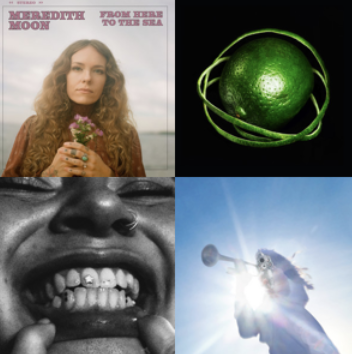The cover of Prince’s 1994 album Come tells you everything you need to know about those pivotal few years in his career. It depicts the pop star, now barely recognizable from his rise to stardom a decade earlier with “Purple Rain,” stanced outside of cemetery gates knocked ajar, beckoning towards the audience with a cane. Sprawled in the middle of the cover is the announcement of his own “death” – Prince, 1958-1993.
The death this album cover is referring to isn’t of Prince himself, who wouldn’t pass on for another 24 years, but rather his name. Just over a year before the album’s release, Prince announced that he planned on changing his name to the unpronounceable “Love Symbol,” as a result of a dispute with Warner Bros. over the ownership and release schedule of his backlog of music, along with a variety of other reasons Prince felt that his creativity was being stifled.
His idea was to release two albums consecutively – one filled with songs recycled from his vault, released under the Prince moniker, under-marketed and meant to underperform, and one with newer tracks, released under the Love Symbol and meant to do well. That way, he could prove to his label that the name change wouldn’t affect his popularity or album sales. Warner Bros. refused to follow through on this, releasing the former in 1994 and the latter, “The Gold Experience,” a year later, both to lukewarm reception.
But what this scheme left us with was “Come,” a dark, extremely (and often uncomfortably) sexual, hip-hop inspired album broken up by interludes of Prince breathily speaking over the sound of crashing waves. Though not exactly “good” by any stretch of the term, “Come” is fascinatingly experimental and an interesting look into the eyes of a talented musician struggling with his commitment to the art form.
The album begins with the tone-setting titular track, an 11-minute long sexual romp whose title means exactly what you think it means. It’s Prince’s longest song to be released on a studio album thus far, and it does a good job of settling into its easy, sensual groove and letting its horns carry listeners through its rolling peaks. About seven minutes in, Prince begins replacing singing for some sensual spoken-word, which eventually descends into the vague smacking of lips and other sex noises.
The sexual lyrics continue throughout the entirety of the album, resulting in some truly intense moments, such as in “Pheromone.” “L is for lust, O is for obsession,” Prince begins after another breathy, wave-crashing intro. You can probably guess what V stands for as it, E, envelops, his “site.”
Another one of Prince’s most experimental tracks comes fourth in the album. “Loose!” is an upbeat acid house track filled with pulsating, unforgiving bass, abrasively artificial drums, and feedback-laced vocals. Many of the songs off this album are reworked from Prince’s 1993 stage production Glam Slam Ulysses, a reimagining of the ancient tale The Odyssey. Originally, “Loose!” was written to be Prince’s representation of Hades and the underworld. It’s also easily one of the best tracks on the album.
The only other song that could match this level of experimentation in Prince’s career is a little less successful, however, “Solo,” a strange, atmospheric cry for help from a dark place comes later in the album and solely consists of a harp, some layered synths, and Prince’s crooning falsetto.
There are a couple other highlights from the album, though few come from particularly notable tracks. There’s “Papa,” a short song about a father who abuses his son. Towards the end, Prince simply states, “Don’t abuse children, or else they turn out like me.” “Race” is based largely upon an 80s hip-hop sound, with Prince delivering fast, low raps about discrimination such as “We all bones when we dead.” “Dark” is an interesting play on his love ballads from earlier in his career. While it carries many of the same characteristics as his sexual love songs like “Do Me Baby” or “Adore,” the lyrics instead focus on the dark place Prince falls into after a breakup.
The album finished off with an interesting pair of songs that couldn’t be more different from one another. The penultimate track, “Letitgo,” is the only song written specifically for this album. It’s a clear dig at Warner Bros., calling out for a chance to focus on his creativity and new ideas without the burden of other people’s opinions. It’s also the most upbeat song on the album, and a nice refresher on what Prince’s new 90s sound was at its best.
Finally, “Come” concludes with something of a holy grail of Prince tracks. “Orgasm” is exactly what it sounds like – 98 seconds of a woman moaning while he coaxes her on, set against bleary guitar feedback and, of course, more crashing waves. It’s a fitting, if caricaturish end to the first fifteen years of Prince’s illustrious career. Prince was officially dead, and the Love Symbol had taken his place to fill out the last few years of his contract.




